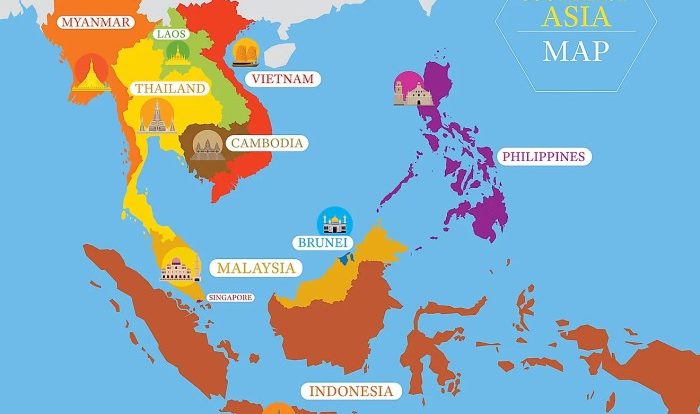Cesar chavez he showed us the way – Cesar Chavez: He Showed Us the Way, the title of this captivating piece, aptly captures the essence of Cesar Chavez’s unwavering dedication to social justice. His life’s work serves as a testament to the transformative power of nonviolent resistance and the indomitable spirit of the human soul.
As a tireless advocate for the rights of farm workers, Chavez spearheaded the Delano grape strike, a pivotal moment in the history of labor movements. His unwavering commitment to nonviolent resistance, inspired by the teachings of Mahatma Gandhi, became a hallmark of his leadership.
Historical Background of Cesar Chavez

Cesar Chavez was born on March 31, 1927, in Yuma, Arizona. His parents were Mexican immigrants who worked as farm laborers. Chavez grew up in poverty and experienced firsthand the harsh conditions faced by farm workers. He dropped out of school at a young age to help his family earn a living.Chavez’s
activism was influenced by the social and economic conditions of the time. Farm workers were often exploited and underpaid. They worked long hours in dangerous conditions and had little access to basic services such as healthcare and education. Chavez was determined to fight for the rights of farm workers and improve their lives.
Role in the Farm Workers Movement
Cesar Chavez played a pivotal role in the farm workers movement. In 1962, he co-founded the National Farm Workers Association (NFWA), which later became the United Farm Workers (UFW). Chavez led the NFWA in a series of strikes and boycotts, including the Delano grape strike of 1965-1970.The
Delano grape strike was a turning point in the farm workers movement. It brought national attention to the plight of farm workers and forced growers to negotiate with the UFW. Chavez’s leadership style was characterized by his commitment to nonviolent resistance.
He believed that peaceful protest was the most effective way to achieve social change.The UFW’s efforts led to significant improvements in the lives of farm workers. They won higher wages, better working conditions, and health benefits. The UFW also played a key role in passing the California Agricultural Labor Relations Act of 1975, which gave farm workers the right to organize and bargain collectively.
Advocacy for Social Justice, Cesar chavez he showed us the way
Cesar Chavez’s advocacy for social justice extended beyond the farm workers movement. He was a strong supporter of civil rights and fought for the rights of all marginalized groups. Chavez was involved in the Chicano movement and worked to promote Mexican-American culture and identity.
He also spoke out against the Vietnam War and advocated for peace and justice.Chavez’s work had a profound impact on the broader social justice movement. He inspired other activists to fight for the rights of the poor, the oppressed, and the voiceless.
His legacy continues to inspire people today to work for a more just and equitable world.
Cultural and Artistic Representations
Cesar Chavez’s life and work have been represented in a variety of art forms, including music, literature, and film. Songs such as “The Ballad of Cesar Chavez” by Joan Baez and “Huelga” by Carlos Santana have celebrated his legacy. Documentaries such as “Cesar’s Last Fast” and “The Fight in the Fields” have chronicled his life and work.These
representations have played a significant role in shaping public perception of Chavez and his movement. They have helped to educate people about the plight of farm workers and the importance of social justice.
Impact on American Society
Cesar Chavez’s activism has had a lasting impact on American society. His work has helped to improve the lives of farm workers and has contributed to the advancement of civil rights and social justice. Chavez’s legacy continues to inspire people to work for a more just and equitable world.
Essential FAQs: Cesar Chavez He Showed Us The Way
What was Cesar Chavez’s role in the farm workers movement?
Cesar Chavez co-founded the United Farm Workers union, which led the Delano grape strike and fought for better wages, working conditions, and healthcare for farm workers.
What was Chavez’s philosophy of nonviolent resistance?
Chavez believed in the power of nonviolent resistance, inspired by the teachings of Mahatma Gandhi. He advocated for peaceful protests, boycotts, and strikes to achieve social change.
What was Chavez’s legacy beyond the farm workers movement?
Chavez became a prominent advocate for civil rights, immigration reform, education, and healthcare. His work helped shape American social policy and inspired future generations of activists.




